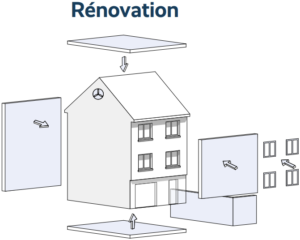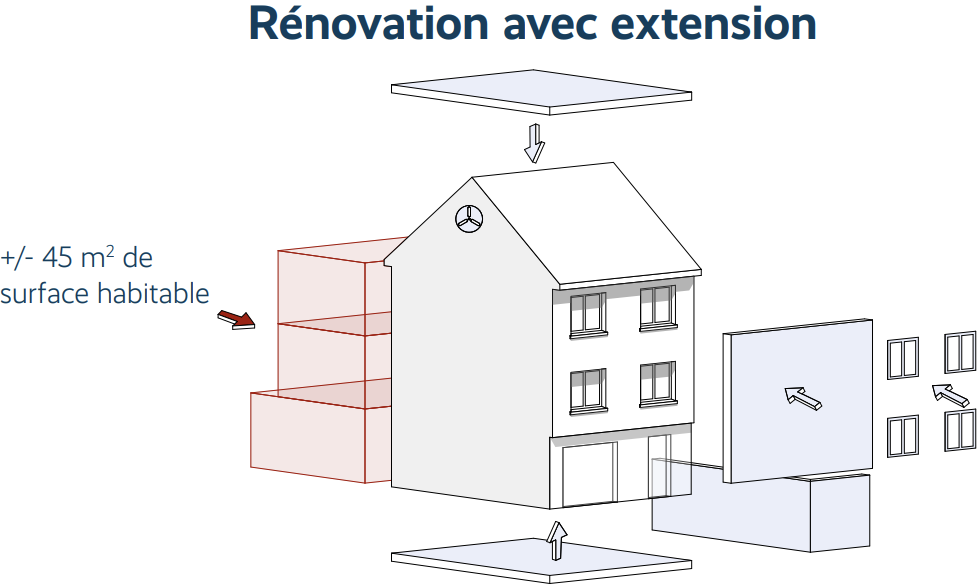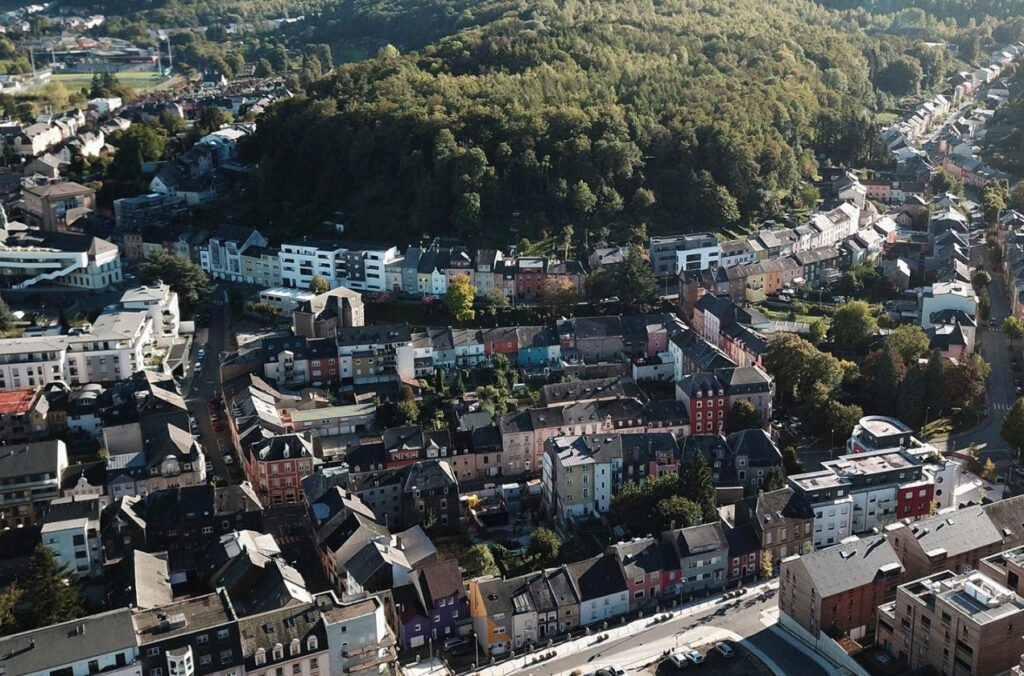In April 2023, the City of Differdange and Klima-Agence, in collaboration with the Ministry of Energy and Spatial Planning, the Ministry of the Environment, Climate and Sustainable Development as well as the National Institute for Architectural Heritage, launched the pilot project “zesumme renovéieren” (www.zesumme-renoveieren.lu) on the renovation of residential buildings in Differdange, which will gradually be complemented by an initiative to improve the urban design quality of the neighborhoods undergoing renovation.
It takes up one of the proposals formulated as part of the international consultation Luxembourg in Transition concerning the need to ensure the renovation of the building stock in order to reduce greenhouse gas emissions and to reduce land consumption by valorizing the “existing buildings”.
Voir la carte
General context
Timeline and methodological planning
Renovation of residential buildings
Challenges and next steps
General context
In the context of the objective of the National energy and climate plan (PNEC) to reduce final energy consumption by 44% by 2030 and in line with the priorities of the Long-term renovation strategy for Luxembourg, the pilot project aims to increase the rate of renovation in existing neighborhoods and thus reduce the energy consumption of residents. In doing so, the pilot project will also contribute to the efforts of the City of Differdange, one of the cities selected as part of the EU’s Mission “100 Climate-Neutral and Smart Cities by 2030”, to achieve carbon neutrality by 2030 through the renovation of the roughly 4,000 residential buildings in its building stock.
The project also contributes to the implementation the Territorial Just Transition Plan for of Luxembourg, which aims to tackle energy poverty among low-income households in the south of the country by increasing the energy efficiency of their homes.
Timeline and methodological planning
21 April 2021: First presentation of the project to the Council of the Mayor and Alderpersons of the City of Differdange and official decision to go ahead with the project.
2021 to 2023: Preparatory work, including preparation of the pre-study with the ICM consultancy firm (Bottrop) and development of a typology of single-family homes.
24 avril 2023: Public launch meeting for the project, with the residents of the City of Differdange.
From April 2023: Advice and personalized support for concrete energy renovation projects.
From the end of2023: Launch of an initiative to improve the urban design quality of neighborhoods undergoing renovation.
Renovation of residential buildings
The aim of the pilot project is to boost the energy renovation rate in the neighborhoods most suitable for energy renovation (in terms of their building stock), with a focus on deep renovation, by bundling technical advice and support for the owners of the buildings involved throughout the renovation process.
The methodology of the pilot project is based on a typology of the most common residential buildings (mainly single-family homes) in the various districts of the City of Differdange. This typology makes it possible to identify the energy renovation needs and the potential energy savings specific to each type of building. The typology is then applied to propose specific energy renovation measures for each type of building in the form of a “ready-to-renovate” catalogue, taking into account the government subsidies “Klimabonus Wunnen” and other potential subsidies. This approach enables recommendations to be standardized, and therefore has a multiplier effect.
The energy renovation measures include improving the thermal envelope and replacing fossil-fuel boilers with heat pumps or other renewable energy installations.
The project is being carried out in close collaboration with the National Institute for Architectural Heritage (INPA) in order to coordinate the energy renovation measures with heritage protection requirements.
All owners of single-family homes in the City of Differdange are targeted (but participation is on a voluntary basis), while priority is given to vulnerable households in the context of the efforts to tackle energy poverty.
To discover the renovation potential of a building, it is possible to identify the type of building to which a house corresponds by using an online search tool or by selecting an image that corresponds to the house :



Challenges and next steps
On the basis of the first results of the project “zesumme renovéieren”, which at this stage remains of a “pilot” nature, it is planned to extend the measures to other municipalities in the Grand Duchy of Luxembourg by transferring the methodology developed and tested in Differdange to the national level, within the framework of the future National agency for supporting energy renovation, decarbonisation and photovoltaic installations for residential buildings, in order to provide structured and comprehensive support for homeowners.
There are also plans, as a next step, to launch an initiative aimed at improving the urban design quality of neighborhoods undergoing renovation, particularly through the revitalization and improvement public spaces, streets and facilities.
Pour plus d’informations :

Zesumme renovéieren :

Typology of buildings:



